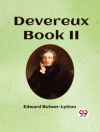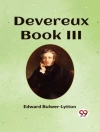Charles Dickens’ ‘A Christmas Carol’ is a timeless literary classic that delves into themes of redemption, generosity, and the spirit of Christmas. Written in a vivid and engaging narrative style, the book follows the journey of Ebenezer Scrooge, a miserly old man, who is visited by the ghosts of Christmas Past, Present, and Future. Through these spectral encounters, Scrooge is forced to confront his own life choices and the impact they have had on those around him. The vivid descriptions and characters in the novel reflect the socio-economic issues of Victorian England, shedding light on the harsh realities of poverty and inequality. Dickens’ use of symbolism and allegory adds depth and complexity to the story, making it a compelling read for both young and old readers alike. Charles Dickens, a prominent 19th-century author, drew inspiration for ‘A Christmas Carol’ from his own experiences of childhood poverty and social injustice. His commitment to social reform and advocacy for the marginalized is evident throughout the book, as he calls attention to the importance of compassion and empathy in society. Dickens’ vivid imagination and strong moral compass shine through in his portrayal of Scrooge’s transformation, urging readers to reflect on their own actions and values. I highly recommend ‘A Christmas Carol’ to readers seeking a heartwarming tale of redemption and the true spirit of Christmas. Dickens’ timeless masterpiece continues to resonate with audiences worldwide, offering valuable lessons in kindness, forgiveness, and the power of human connection.
Sobre o autor
Charles Dickens (1812–1870) is often regarded as the greatest novelist of the Victorian era, combining keen observation of character and society with a uniquely powerful storytelling prowess. Dickens’s early experiences of poverty shaped his work, documented in his semi-autobiographical novel ‘David Copperfield’. His capacity to craft complex characters and dramatize social issues has earned him both critical and popular acclaim. ‘A Christmas Carol’ remains one of his most beloved works, a novella that has profoundly influenced the way Christmas is celebrated in English-speaking cultures. With its vivid portrayal of the miser Ebenezer Scrooge, and its journey through Christmases past, present, and future, the story encapsulates Dickens’s blend of social commentary and fanciful storytelling. His literary style, marked by wit, satire, and a dash of melodrama, aimed to entertain as well as to critique the social ills of his time, from child labor to class inequality. Dickens’s influence extends beyond literature into the broader cultural sphere, affirming his status as a towering figure in the English literary canon.












